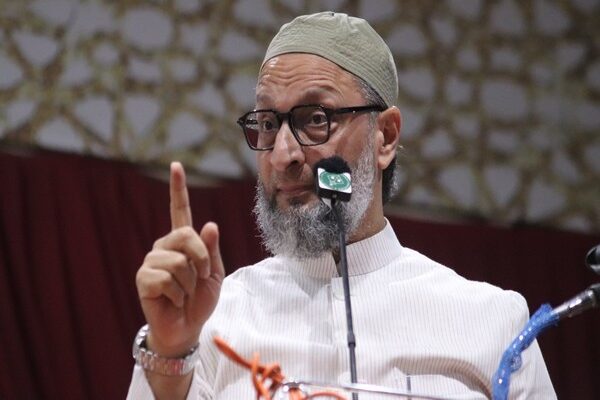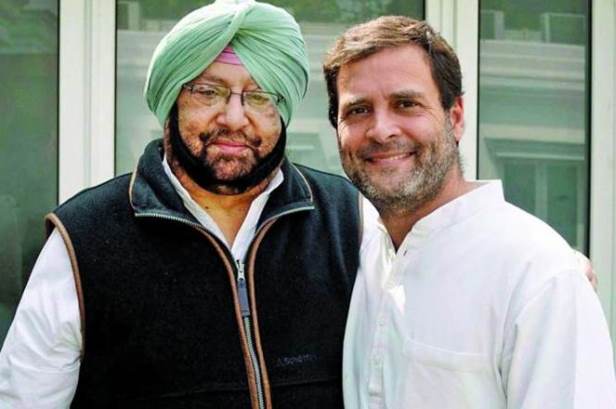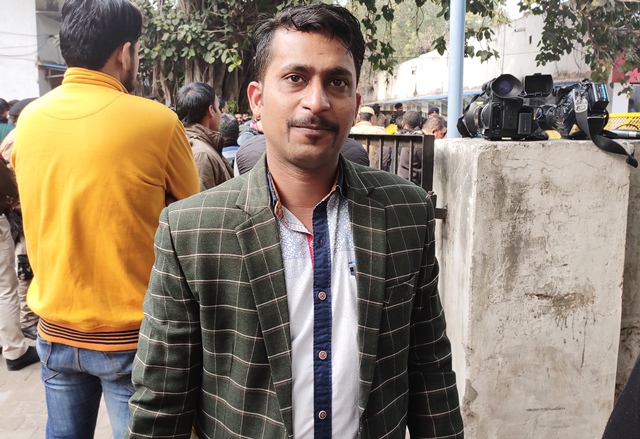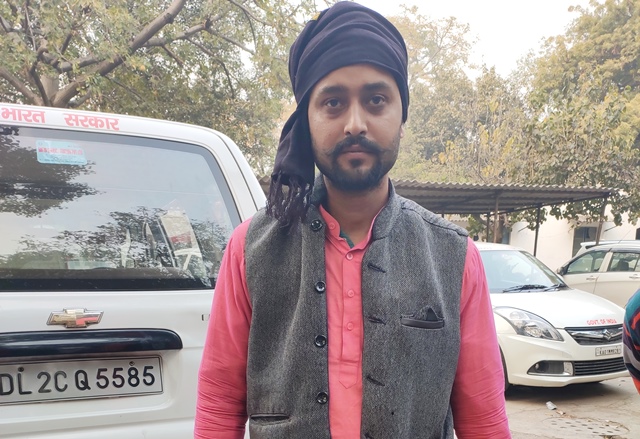Insinuations about the Nehru-Gandhi family’s ‘Muslim’ past, made by their cultural/political foes, are old. But for the first time, during a very toxic campaign for Delhi Assembly elections, Firoze Gandhi was called “Firoze Khan”. None from the Congress party that the family heads, objected, ostensibly out of fear that the issue would get communal hue. Congress is politically frozen. It needs a new leader.
It’s delicate. Criticizing Congress leaders/cadres
for this is difficult when Nehru-bashing even by union ministers is the
in-thing and when lawmakers question Mahatma Gandhi’s role in the freedom
movement. But all this, besides weakening of secular ethos for which India is
known, underscores the decline that the party has suffered over the recent
years.
Assessing this decline is also not easy, indeed,
difficult to define, when the party still has three scores of Members in
Parliament (out of 800-plus) and rules, singly or jointly, in major states like
Punjab, Rajasthan, Madhya Pradesh, Chhattisgarh and Maharashtra.
The other, more important, aspect of this political reality is declining vote share, of its leaders and activists, young and old, jumping off the ship and turning vocal critics, overnight as it were, to get accepted in their new parties. But most important, over a long period now, is the low reached in the vote-catching influence of its top leadership.
More glaring are the inertia within and
directionless approach, of losing states – Goa, Arunachal Pradesh, Haryana –
despite numbers and being outsmarted by rivals. The worst is the public
ridicule to which the party and its leaders are subjected to in social
media-driven information explosion and a low-level public discourse.
The latest instance of all these is the
Delhi polls that saw the Congress drawing a blank, yet again, cementing its vote-share
loss during the parliamentary polls in 2014 and 2019. Sixty-three of its 66
candidates lost deposits, after ruling for 15 years straight in this small but politically
important national capital.
Newbie Aam Aadmi Party (AAP) has almost
entirely hijacked the Congress’ support base. Elsewhere, across the North –
Uttar Pradesh, Bihar, West Bengal, much of the North-East and the South – it
has long ago lost out to regional parties.
Placed in similar dire stress after losing in 2004 and 2009, the Bharatiya Janata Party (BJP) recovered. It held on to states where it wielded power with strong chief ministers and eventually, found its national leader and vote-getter in Narendra Modi. Mounting this process was its larger cultural/political family. The Congress does not have this, even as its mass base is eroding.
India’s oldest party is stuck with the
Gandhis, who are neither able to deliver, nor able/willing to give up. A
‘temporary’ president, Sonia Gandhi, had headed it the longest, for 19 years,
earlier. She is known to be ailing and keen to retire. Her reticent son Rahul,
resigned after a disastrous performance last summer and asked for selecting a
“non-Gandhi” to lead. But nearly five decades of the family rule has totally
benumbed the party, at all levels, into not even looking for a new leader or a
set of people who can provide coherent, collective leadership. For want of a
better word, the party is in coma.
The Delhi debacle and prospects of Rahul
returning to lead, likely next month, if only to relieve his mother, have
brought the prolonged crisis to the fore. Reports indicate a silent demand, a
muffled one so far, for a “non-Gandhi.”
Reports also indicate deep discord and
disarray within the family. Sonia wants Rahul to return, but does not seem to
trust his choice of aides and his decisions – and not without reason. The “old
guard” around her clashes with the ‘new’ one close to Rahul. The difference
between the two is that the ‘old’ is really old and now rootless, while the
‘new’, by and large of young techies and managers, never struck roots.
Much was made of Priyanka and her
resemblance to grandma Indira Gandhi. But repeated electoral outcomes show that
the present-day voter’s memory is too short for that. If Priyanka is the alternative
to Rahul, she is also the sitting duck for a government that is vigorously pursuing
cases against husband Robert Wadra.
Rahul tried, with limited success last
year, to by-pass his 24X7 ridicule. His ill-advised choice of campaign issues
and gaffe-prone performance went against him and the party.
To be fair, the Gandhis are a decent lot. Rajiv,
the last Gandhi to rule was extremely decent, too. But that is not enough in
politics. They are expected to deliver each time, often as the lone rangers. Absence
or internal elections leaves them with leaders, but no workers.
The Congress’ shrinking cadres need
leader(s) who actually perform full-time and not during the elections; who can rub
shoulders, literally, with the crowds. Past sacrifices, charisma and token
reach-outs with photo-ops, without support on the ground have not worked, and
will not in future.
This is not the Congress of the Mahatma
and Nehru who were relatively tolerant of dissent. Indira ended it, appointing
leaders from the top and turning the party into a family estate. Although the
Gandhi family was not active from 1991 to 1998, Narasimha Rao could not be
without its overcast shadows. Ditto Manmohan Singh who had no base, no say in
the party. She lacks understanding of Indian
social and psychological traditions. She must be credited, though, for forging
alliances that earned the Congress power in 2004.
When Sonia entered politics in 1998, some
left, dubbing her a ‘foreigner’. Today, some Congressmen clamour for the return
of one: Sharad Pawar. Conventional wisdom still places Congress as the
Opposition’s rallying point – only if it strives to organize and act.
The party is unsure of its ideological
direction. Adopting “Soft Hindutva” has failed. The task of countering the
BJP’s majoritarian agenda is extremely daunting when secularism means being
pro-Muslim and thus, “anti-national.”
The Gandhi-centric working has
marginalized strong and credible Congress chief ministers Amarinder Singh
(Punjab), Kamal Nath (Madhya Pradesh), Ashok Gehlot (Rajasthan) and Bhupesh Baghel
(Chhattisgarh). Decision-making by a weak leadership and anxiety to hold everyone
together have left these older satraps fighting with younger rivals.
Generational changes have been most
painful in Congress whose Treasurer is 92. None retires in India, anyway, irrespective
of age and health.
The Gandhis need to take political
sabbatical, completely, if not quit. Let Amarinder Singh head the organization,
with young, strong support from the likes of Sachin Pilot and Jyotiraditya
Scindia. Lok Sabha needs an articulate Shashi Tharoor.
But naming names is futile till the party
that is wedded to only one name acts. There is still time, last chance, perhaps,
to stem the rot.
The
writer can be reached at mahendraved07@gmail.com



